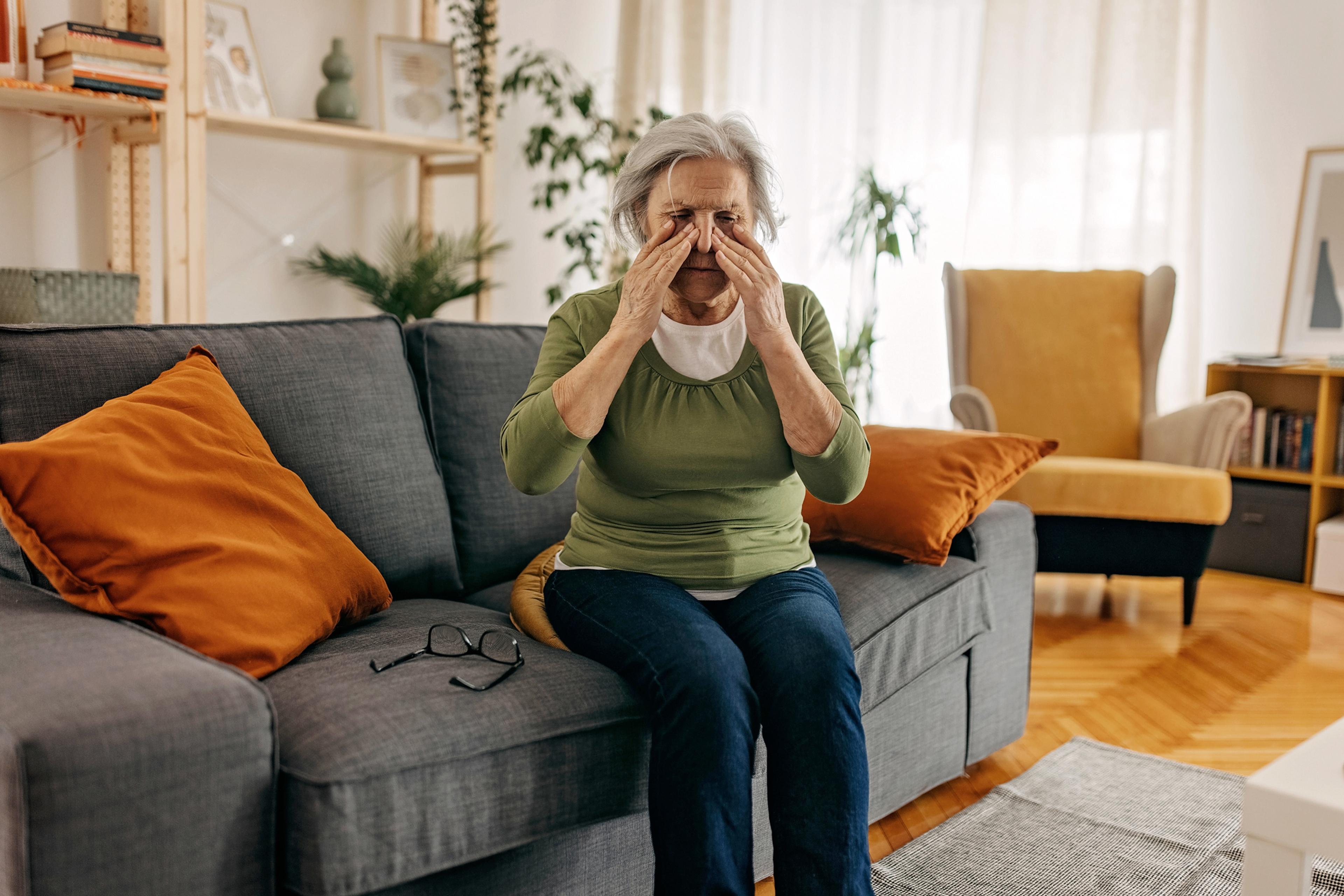Sleeping Better with Allergies and Sinusitis
Jake Newby
| 3 min read

Getting a good night’s sleep with allergies or sinus problems can be challenging. We need a healthy nasal airway to breathe easy throughout the night and be happy, healthy and productive the next day.
Allergies, sinus infections and other causes of nasal obstruction force us to rely on breathing almost exclusively through our mouths. Nasal breathing is important because it passes more oxygen through to active tissues and activates the part of the nervous system that promotes rest through slower heart rate, recovery, and digestion.
What is the difference between allergies and sinus problems?
Allergies and sinusitis – conditions that cause cavities around the nasal passage to become inflamed – can be easily confused with one another because their symptoms are similar.
With both sinusitis and allergies, your nose and sinuses get stuffed up. With allergies, however, nasal passages and sinuses swell because they are reacting to things you are allergic to, like dust mites, pollen, mold, or pet dander.
Sinusitis usually develops because of allergies, or from a cold. Sometimes it's from bacteria that cause an infection. The Centers for Disease Control and Prevention (CDC) states that roughly 29 million American adults have sinusitis, a condition in which the cavities around the nasal passage become inflamed. This can feel like an overwhelming amount of pressure and fullness in the cheeks, around your eyes and nose, and above the brow on your forehead.
Why do sinus issues/sinusitis get worse at night?
Sinusitis is never a walk in the park, but it can be particularly troublesome at night. Allergies, in general, are worse at night for multiple reasons. Our bedrooms tend to have the highest concentration of dust mites in our homes and nasal congestion can worsen when we lie down, because blood flow increases to our heads. Plus, any pollen that lingers on your skin and hair can stick to your bedding.
Sleep can be disturbed when these allergens irritate our nasal passages and make it difficult to breathe.
How to alleviate sinus issues and allergies before bedtime
If you’re having a tough time sleeping, give some of these tips a try:
Avoid drinking alcohol before bed: Refraining from alcohol consumption means you won’t be dehydrated, which can be another trigger for sinus problems. The same goes for caffeine. Stick with water and decaffeinated beverages in the hours before you go to sleep.
Consider allergy meds: Have a conversation with your primary care provider about antihistamines and whether they’re right for you. Over-the-counter allergy medications can help control allergy symptoms.
Keep your bedroom clean: A bedroom free of dust, pet dander and pollen in the air and on surfaces can lead to good, uninterrupted sleep. Clean and disinfect your room often and consider keeping pets out of the room and off your bed. You should also wash your pillowcases and bedsheets often.
Use a humidifier: Using a humidifier can help soothe dry sinus passages and keep the air in your bedroom moist.
If you believe your sinus issues are severe, reach out to your primary care provider. It may be wise to schedule an appointment to get to the root of your sinus or allergy issues. The two of you can put a treatment plan together to bring you some relief and help you sleep better at night.
Photo credit: Getty Images
Read more:





